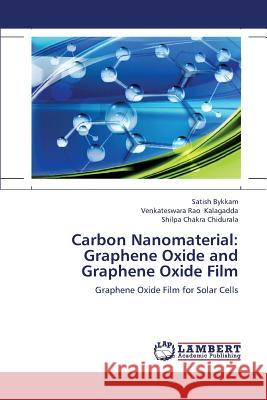Carbon Nanomaterial: Graphene Oxide and Graphene Oxide Film » książka
Carbon Nanomaterial: Graphene Oxide and Graphene Oxide Film
ISBN-13: 9783659376399 / Angielski / Miękka / 2013 / 132 str.
Graphene oxide (GO) have been a special attention in current research from the discovered as a new carbon material. It also provides an alternative path to graphene. The structure of GO is often simplistically assumed to be a graphene sheet bonded to oxygen in the form of carboxyl, hydroxyl. Since these groups have a high affinity to water molecules, it is hydrophilic and can be easily dissolved in water and other solvents allows it to be uniformly deposited onto wide ranging substrates in the form of thin films, which makes it potentially useful for microelectronics. The resulted graphene oxide and its thin film were characterized by XRD, DLS, FESEM, UV-VIS, Raman Spectroscopy, FTIR and TGA. These graphene oxides have important applications in areas related to transparent conductive film, composite materials, solar energy and medical applications etc. This graphene oxide is also used for antibacterial application against different bacterial species.
Graphene oxide (GO) have been a special attention in current research from the discovered as a new carbon material. It also provides an alternative path to graphene. The structure of GO is often simplistically assumed to be a graphene sheet bonded to oxygen in the form of carboxyl, hydroxyl. Since these groups have a high affinity to water molecules, it is hydrophilic and can be easily dissolved in water and other solvents allows it to be uniformly deposited onto wide ranging substrates in the form of thin films, which makes it potentially useful for microelectronics. The resulted graphene oxide and its thin film were characterized by XRD, DLS, FESEM, UV-VIS, Raman Spectroscopy, FTIR and TGA. These graphene oxides have important applications in areas related to transparent conductive film, composite materials, solar energy and medical applications etc. This graphene oxide is also used for antibacterial application against different bacterial species.











